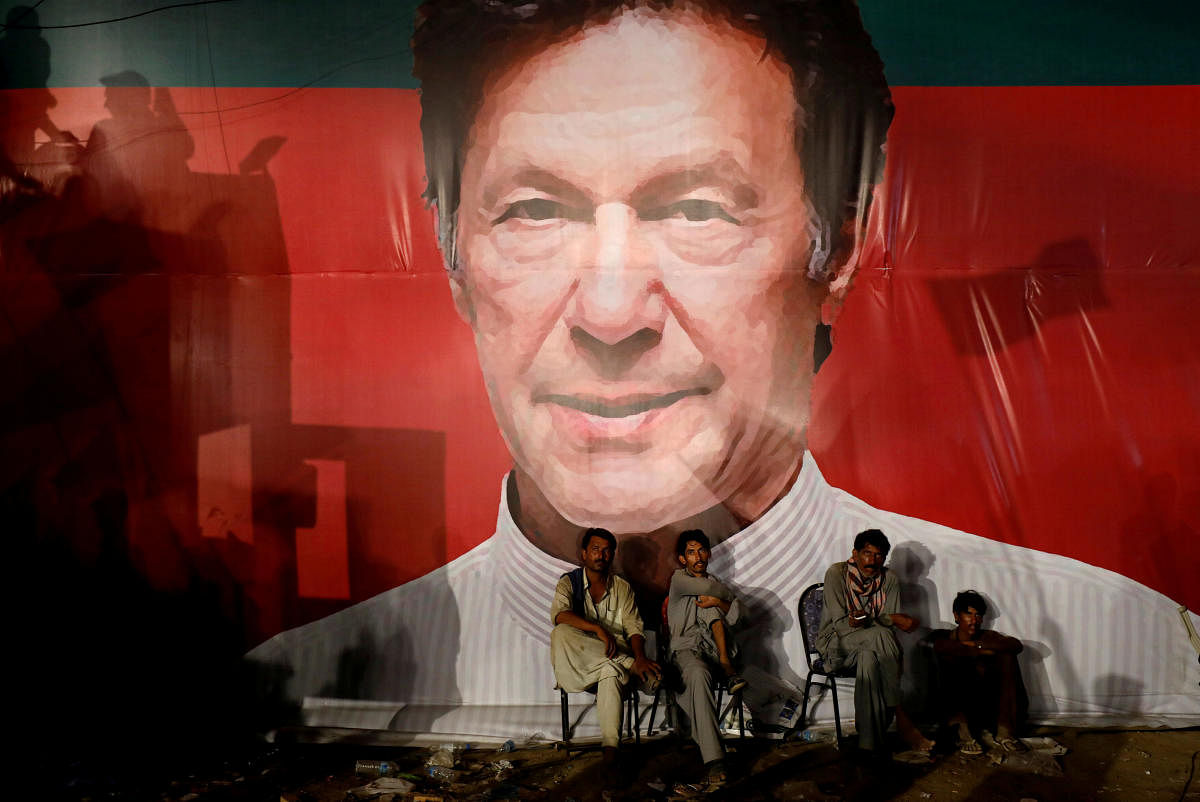Soon after assuming office Prime Minister Imran Khan constituted his Economic Advisory Council (EAC), appointing to it leading Pakistani economists from the academia and industry, from within and outside the country. Pakistan’s government finances and its foreign exchange reserves are in crisis. Khan has necessarily to give top priority to improve the country’s economy, and he needs all the sound professional advice he can get to do so. Hence, his alacrity in putting together this council was understandable and commendable.
Among others, Princeton University economist Atif Mian was appointed to the council. He is a young, celebrated professional, called “Pakistan’s pride” by some. Khan’s decision to include him was wise. Indeed, in 2014, Imran Khan had publicly said that when he became prime minister, he would appoint Atif Mian as finance minister. He had then taken a dig at Nawaz Sharif’s finance minister Ishaq Dar, hinting that the appointment was on account of personal reasons; Dar’s son is married to Sharif’s daughter. If there was a problem regarding Atif Mian, it was not on account of his professional credentials but his faith.
He belongs to the Ahmadi sect, which has always been targeted by Pakistan’s religious parties. Thus, in 2014, Khan back pedalled when he was informed of Atif Mian’s Ahmadi faith. He did not say much on him but emphatically asserted that anyone who questioned that Prophet Mohammad was Allah’s last prophet could not be a Muslim.
In view of that 2014 background, it was encouraging that Khan did go on to appoint Atif Mian to the EAC. It seemed that Khan would be guided by merit and professional competence in his choice of officials and experts. This hope was strengthened when Pakistan’s minister of information and broadcasting Fawad Chaudhry called those who opposed Atif Mian’s appointment extremists. Chaudhry said that it was the religious obligation of all Muslims to defend the minorities; that the minorities had as much claim on Pakistan as the majority community.
However, as the religious parties and some opposition parties, including Sharif’s Pakistan Muslim League (N), opposition to the appointment gathered strength, religious affairs minister Noorul Haq Qadri advised Khan to retract Atif Mian’s appointment. Khan, who wants to follow the ideals of Pakistan’s founder Muhammad Ali Jinnah, beat a hasty retreat and accepted Qadri’s suggestion. He dropped Atif Mian from the EAC. Khan’s decision is significant for an understanding of Pakistani society and polity and of the trajectory that he is likely to take as prime minister.
Pakistan’s religious parties and groups have a special antipathy towards the Ahmadis. The sect was founded in 1889 in Qadian in Gurdaspur district of Punjab by Mirza Ghulam Ahmad. The sect considers itself as belonging to the Islamic faith but also believes that Ghulam Ahmad was a Mahdi and Messiah.
Pakistani religious groups hold the Ahmadis as heretics, for the Ahmadis do not subscribe to the belief that Mohammad was Allah’s last Prophet. In 1953, these groups raised the demand that the Ahmadis be declared as non-Muslims. The Pakistani state resisted it, but in 1974, then prime minister Zulfiqar Ali Bhutto declared Ahmadis non-Muslims.
President Zia ul Haq went further to legally bar Ahmadis from calling themselves Muslims or their places of worship as mosques on pain of prosecution and imprisonment. Further, the societal persecution of the Ahmadis in the 1980s and later is well documented, as is the killing of some of them with the police standing idly by.
The fact is that contemporary Pakistan is steeped in prejudice against the Ahmadis and other minorities. By invoking Jinnah’s ideals, appointing Atif Mian and then doing a complete volte-face, Khan has exposed his true colours. He has disappointed many Pakistani liberals who had pinned hopes that he would take Pakistan to a fairer path.
Not a reformer
Among those who have criticised Khan for removing Atif Mian from the EAC is his first wife, Jemima Goldsmith. She tweeted that the decision was “indefensible and very disappointing”. She went on to recall that Jinnah had appointed Zafrullah Khan, an Ahmadi, as his foreign minister.
History records that he did a good job for his country in presenting the Pakistani case on Jammu and Kashmir before the United Nations Security Council in 1948 and later. She should have also mentioned that Pakistan’s lone Nobel laureate physicist Abdus Salaam was an Ahmadi. He was badly treated and his memory has been deliberately allowed to fade in Pakistan. Khan has shown that he is no reformer and does not have the stomach to take bold steps.
Will Khan, who has faltered in the first challenge he faced, be able to take on Pakistan’s entrenched landed and industrial classes and bring about structural changes in the country’s economy to take it on the path of progress? It seems unlikely.
For the time being, he is indulging in public austerity measures. He has not moved to the prime minister’s house, has ordered that luxury vehicles belonging to the government should be auctioned and that all government officials and ministers should travel in economy class. These steps are measures to identify the government with the masses, but they are easy to take. The difficulty will arise when he wants to, if he does at all, to take on the expenditure of the army.
At this time, there is a cosy relationship between Khan and the army, which had paved the way for his victory. Both he and the generals are attempting to show that they are on the same page. The difficulty is that the army is an institution committed to maintaining the status quo. It wants a more efficient Pakistan, not a ‘naya’ Pakistan. If the Atif Mian case is anything to go by, the Pakistani public will only get Imran Khan’s tall claims and rhetoric but not a ‘naya’ Pakistan.
(The writer is former Secretary, Ministry of External Affairs)
